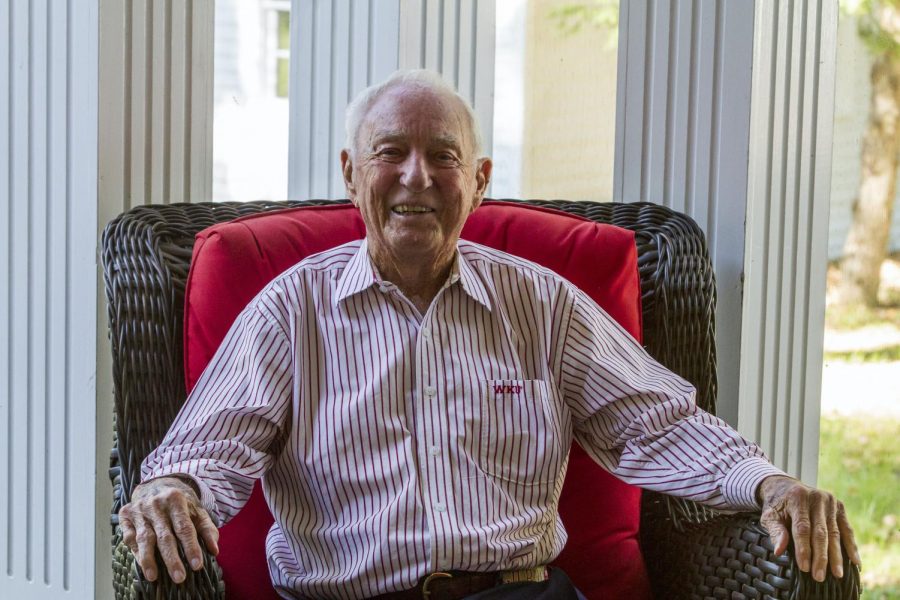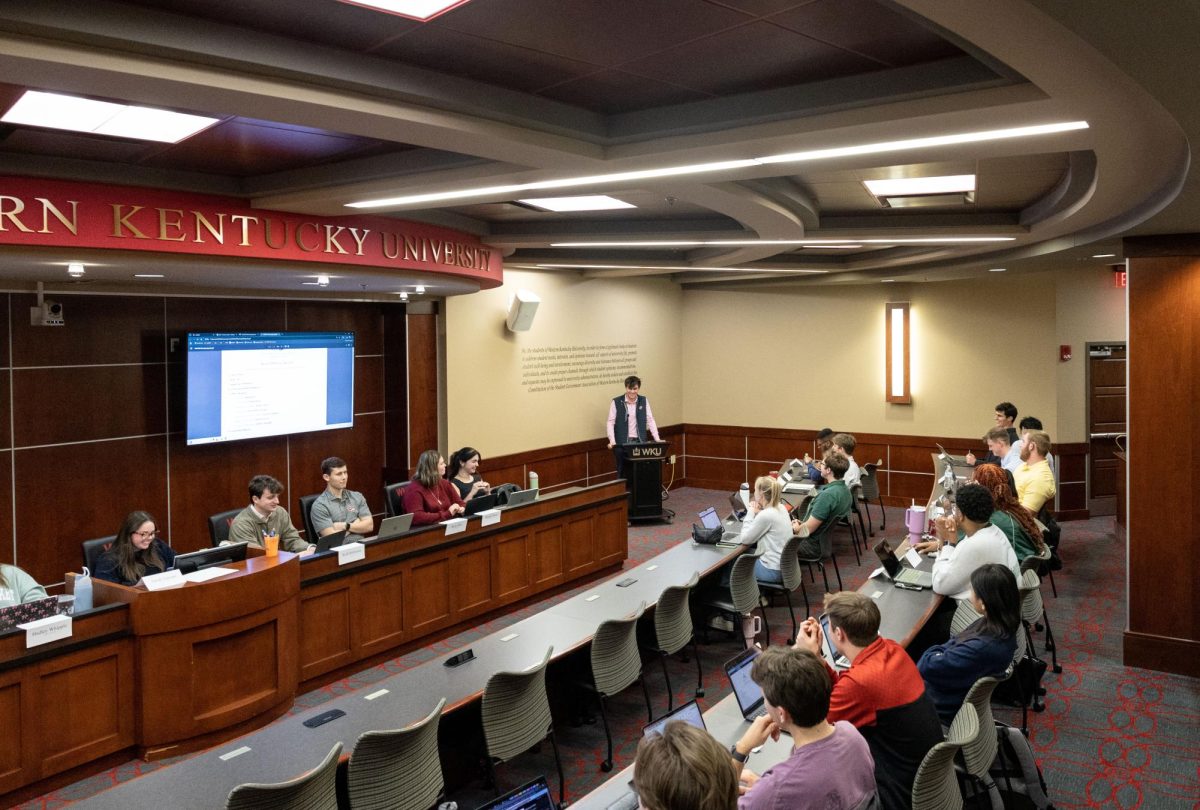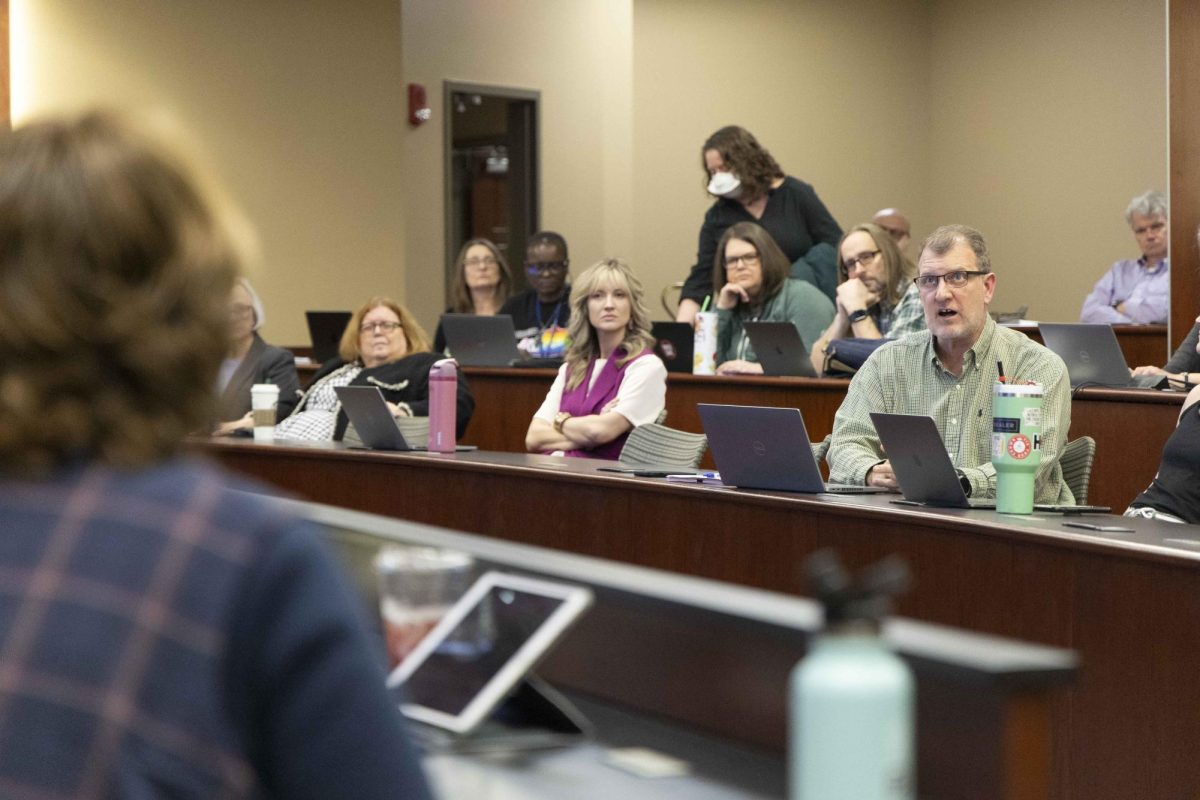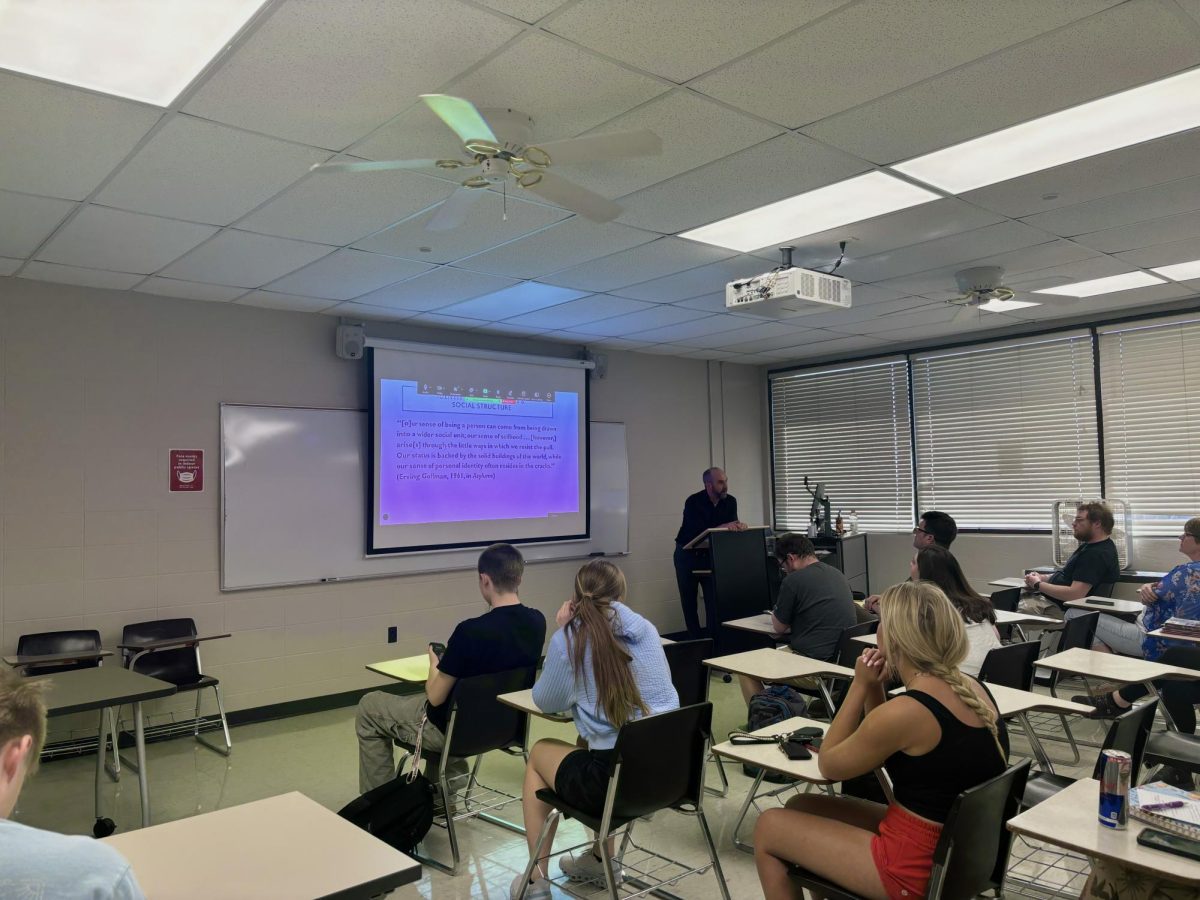The WKU community reflected Wednesday on the legacy and impact of Lee Robertson, also known as “Mr. Western,” following the news of his passing earlier in the day.
Robertson’s 77-year involvement at WKU left lasting impacts on many that climbed the Hill. His time as both a student and staff member reflected his commitment and passion for the institution, those who knew him said.
“Definitely a huge legacy he leaves, and a significant chapter in our history comes to a close with Lee’s passing,” Gary Ransdell, a friend of Robertson and the former WKU president, told the Herald on Wednesday.

In a statement Wednesday morning, President Timothy Caboni said that Robertson touched and transformed the lives of countless individuals during his time serving WKU.
“He demonstrated profound affection for his beloved alma mater, embodying our motto, ‘The Spirit Makes the Master,’ like no one else,” Caboni said.
Robertson first attended WKU in 1946, following his military service in World War II. Back when WKU was called Western Kentucky State Teachers College, Robertson studied physical education and said that he knew that one day he wanted to become a coach after meeting former WKU athletic director and basketball coach E.A. Diddle.
After he graduated from WKU, Robertson worked in several Kentucky cities as a coach and teacher, even serving as a principal and interim superintendent. During this time after college, Robertson met his wife, Joyce, to whom he had been married for over 60 years.
Robertson’s whole family, WKU Parent & Family Engagement Coordinator Ginny Hensley said, was his core.
“When he talks about his own family, he swells with pride, especially about his wife, Mama Joyce, as we all fondly call her,” Hensley said.
Robertson came back to WKU in 1960, this time as the director of alumni affairs, a position he held for 25 years.
He left the university again, but was pulled back by Ransdell, who was originally Robertson’s assistant while he was director of alumni affairs.
“I graduated in 1973 and that’s about the time that I became acquainted with Lee,” Ransdell said. “So for the last 51 years of his life, we became very close, not only as colleagues, but as dear friends as well.”
Robertson helped serve in fundraising after his official retirement.
“Since 1960, Lee has traveled extensively for WKU and helped pioneer the WKU Alumni Association to the connection point it is today for generations of Hilltopper Alumni totaling more than 125,000,” John Paul Blair, special assistant to the president of the College Heights Foundation, said in an email to the Herald. “While he would never take credit, Lee was a key figure in many of the significant philanthropic investments alumni and friends of WKU have made through the years. I cannot imagine WKU without him.”
Hensley first met Robertson while she was a student at WKU and working in special events, but when she came back to WKU to begin her career, she found Robertson again.
“He was my mentor,” Hensley said. “I wanted to shadow him.”
Hensley said that Robertson had a different approach when it came to fundraising. He could sell the university better than anybody because, she said, he believed everything he promoted to his core.
“It is such a loss to all of us,” Hensley said. “He had such a passion for his own family that extended well beyond those people that he lived with, and he called us all family.”
Ransdell recalled the moment Robertson earned the title of “Mr. Western.”
Robertson was selected in 2002 to receive the first Spirit of Western Award, an award that’s given out at the opening convocation each year to a single individual in the WKU family whose loyalty and spirit rose above all others.
“When I called Lee forward, it seemed like a right thing to call him,” Ransdell said. “I said, ‘And this has to be Mr. Western.’ Well, that stuck.
“From that day forward, he kind of carried that moniker of ‘Mr. Western.’”
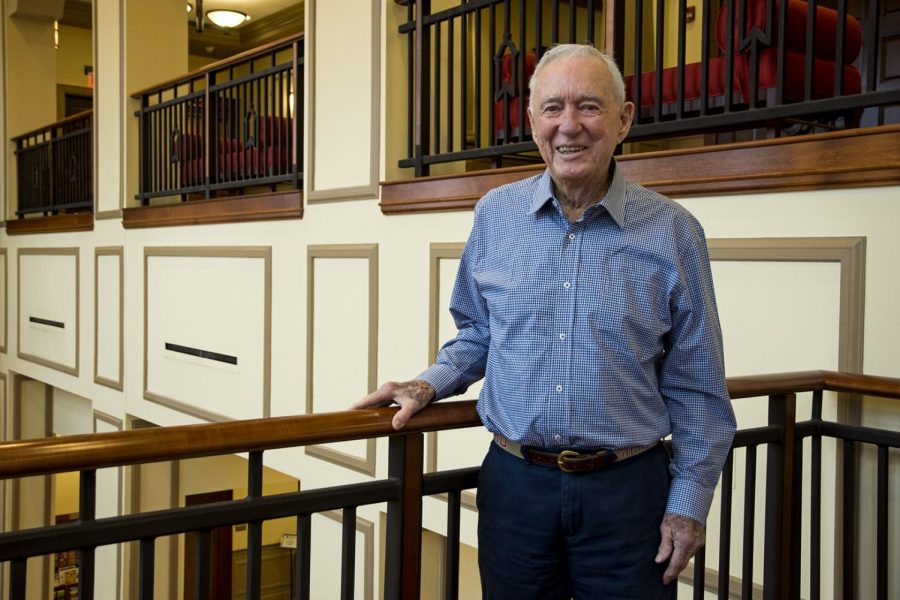
Robertson was 102 years old and still working part-time at the College Heights Foundation before he sustained injuries from an accident a few months back that led to his health decline, Ransdell said.
“I was pleased to have spent a lot of time with him at the end of last week,” Ransdell said. “[I’m] so glad that I did.”
Speaking on Robertson’s work ethic, Donald Smith, president of the College Heights Foundation, said that Robertson came from a family that grew up in the Great Depression. Raised in Calhoun, Kentucky, he grew up in a house with an outhouse, no running water, no central air and no heat. Families at the time worked on the farm and then went on to serve in the military during the Second World War, Smith said.
“He was never afraid of work,” Smith said. “He did whatever it took to put his bootstraps on that day, and he was going to go work to earn an honest day’s living.”
Smith said that he thinks once Robertson started working at WKU, he realized he could do something that he loved day-in and day-out.
“So he never had to convince himself, ‘Oh, it’s tough to come into work every day,” Smith said. “He looked forward to it.”
After learning about his passing earlier Wednesday, Hensley attended a WKU Preview Day for potential incoming freshmen where she said she didn’t even want to talk to anybody.
“But I thought it’s what he would want us all to do, more than anything else, is to recruit these kids to come, and he could sell it better than anybody under the sun,” Hensley said. “Yeah, he would, because he believed it.”
Blair said the term “one of a kind” is used too loosely nowadays. Robertson, he said, was truly one of a kind.
“[He was] a farm kid from western Kentucky who was called to drive a tank for his country to win the second World War then came to WKU on the G.I. Bill and forever made his mark on his beloved Hill,” Blair said. “A shining example of the ‘greatest generation’ who will be missed by all who knew him.”
In an interview for the Herald in 2018, Robertson said he takes the WKU motto, “The Spirit Makes the Master,” to heart.
“It means if you’ve got a passionate feeling about a person or an institution and you love it,” he said, “your spirit for that institution makes your life meaningful and makes you proud and makes you want to do good.”
Mr. Western had said there was “no question about it;” that passion was Western Kentucky University.
“He was passionate about making this place greater, and it was,” Hensley said. “It was greater because of him, and it will forever be greater because of his legacy.”
WKU Philanthropy and Alumni Engagement said in an email to the WKU community this morning that a memorial service is being planned, and they will communicate more information once it is available.
Philanthropy asks those that wish to share memories of Robertson and condolences to the family at this link.
News reporter Cameron Shaw can be reached at cameron.shaw555@topper.wku.edu.


